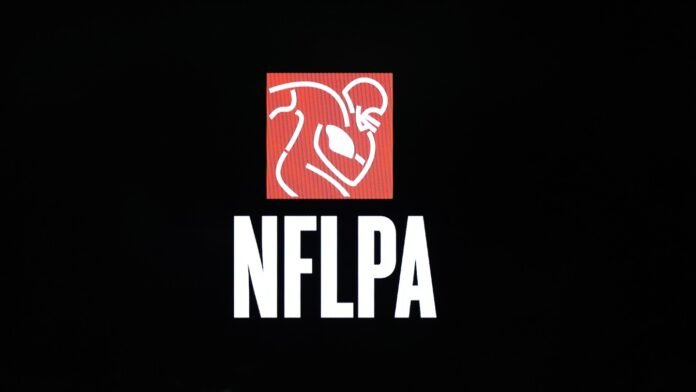The NFL Players Association’s board of player representatives met on Friday night, a day after executive director Lloyd Howell abruptly resigned. The first order of business remains naming an interim executive director, while the search for a new one commences.
And the first battle in the unfolding Game of Thrones is this. Via Dianna Russini of TheAthletic.com, “It’s shaping up to be a two-man race: JC Tretter, who has majority support, and Don Davis. There’s other names, but these are the lead candidates.”
Tretter is the union’s chief strategy officer. Davis is the chief player officer.
Davis’s name first emerged nine days ago, when Howell’s grip on the job weakened after ESPN reported on the cartoonish conflict of interest arising from Howell’s side gig as a paid consultant with The Carlyle Group, a private-equity fund that has been approved to buy minority interests in NFL teams.
Russini followed six minutes later with a critical detail regarding Tretter’s candidacy: “A contingent of NFL players are asking questions and discussing potential legal action against the NFLPA and JC Tretter, citing potential violations around inclusion, labor rights, and misuse of union dues.” This follows the news that a text message critical of Tretter was making the rounds on Friday night.
There should be a separate concern regarding the potential elevation of Tretter. At some point, the federal probe regarding Howell’s relationship with OneTeam Partners could expand. And the reporting regarding the apparent misuse of dues by Howell could spark it. Tretter’s proximity to Howell could make it difficult for Howell to avoid any/all scrutiny regarding whatever the feds may scrutinize.
The NFLPA Constitution contains no procedure for naming an executive director. That could, in theory, give the executive committee the ability to Al Haig the situation and install Tretter, without regard to what the board specifically or the players generally want.
And while Tretter surely has accused and/or will accuse folks like Pablo Torre and me of working against him, here’s the inescapable truth. Tretter engineered the process that resulted in Howell being hired, disqualifying warts and all. Then, Howell hired Tretter for an executive-level job that previously didn’t exist.
Tretter disparaged quarterback Russell Wilson for not insisting on a fully-guaranteed contract from the Broncos. He was involved in, if not responsible for (given his job title), the strategy to hide the partial win in the collusion case from membership. His ridiculous comments to Ross Tucker from July 2023 about faking injuries resulted in a slam-dunk grievance from the league, which possibly was hidden as part of the quid pro quo that required the NFLPA to pipe down about its rare hand-in-cookie-jar victory against the Management Council and the Commissioner.
That’s just the stuff we know about. Outside counsel continues to investigate Howell’s activities. And with each additional finding (such as the strip-club expense-report fiasco), Tretter’s judgment in teeing up Howell through a closed, top-secret process with two candidates looks worse and worse.
If, however, the executive committee and/or the board of player representatives were to make Tretter the interim executive director, we’d suggest an important threshold condition — Tretter must commit to not seeking the permanent job, and to not being involved in the search. As the picture has come into focus in recent weeks, one possible strategy has become clear for the chief strategy officer: One, get Howell hired. Two, get Howell to hire me. Three, position myself to replace Howell when he retires.
The twist has been that Howell left much earlier than anticipated. Tretter could simply be accelerating his plan.
But even if Tretter is the best bad option to replace Howell temporarily, it’s difficult if not impossible to conclude based on the information that has come to light that he’d be the best good option to lead the union into an objects-are-closer-than-they-appear Collective Bargaining Agreement negotiation, which is certain to include the NFL pushing for more games for the teams — and less money (per dollar earned) for the players.






